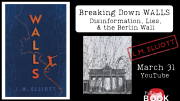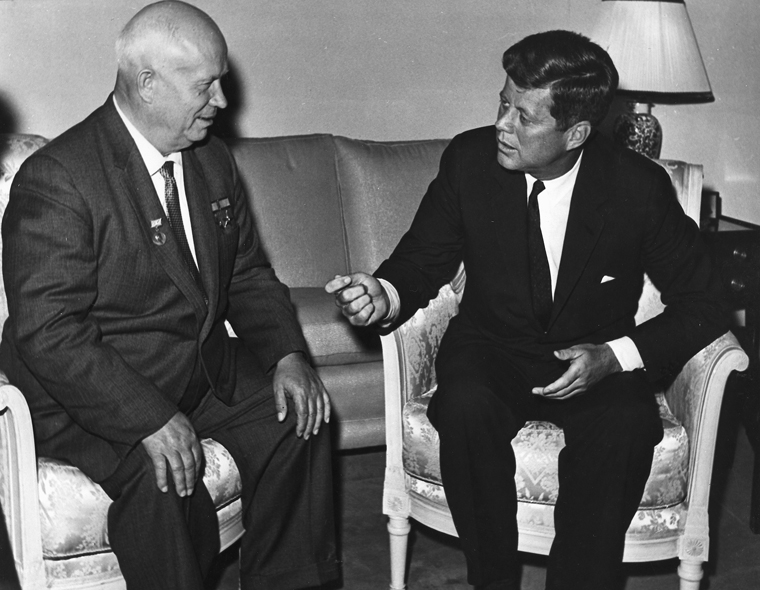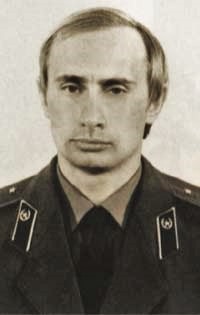
[ Back to Historical Fiction ] -> [ Back to Walls ]
The Cold War & Disinformation
Walls

Watch Breaking Down WALLS, a video from Fall for the Book: youtu.be/ffIyHNVmk-s
Watch "Meet the Author" with the Fairfax County Public School Network, a discussion with 6th grade students about: Why Berlin & Germany were divided into East (communist) & West (free, democratic) after WWII; why NATO was formed; how/why the Berlin Wall went up; the role of disinformation and propaganda in that; and echoes with today in Russia's invasion of Ukraine.
Program and Show Extras.
------------------------------------------------------------------------------------------------------------------------------------
JFK vs. Khrushchev; Disinformation in 1961 and today

Nikita Khrushchev and JFK. Image Source: U.S. State Department
History shows that disinformation and propaganda are terrifyingly potent tools in suppressing nations, creating mob beliefs by deadening free thought and obliterating resistance. Look to Hitler’s Third Reich and the former Soviet Union, for example.
However, it can be more subtle in its impact—seeding fear and distrust to poison the productive conversation and sense of collaboration that is the engine of democracy. Calculated conspiracy theories or outright lies knowingly repeated and spread can build prejudices and unyielding tribalism that make a society vulnerable to in-fighting, all-or-nothing thinking, scapegoating, cults of personality, and the rise of authoritarianism.
These are things our Cold War enemies hoped to plant and then exploit.
Nikita Khrushchev, Russia’s combative leader from 1953 to 1964, famously threatened, “We will take America without firing a shot. We do not have to invade the U.S. We will destroy you from within.”
He did not hide his contempt for JFK or his hatred of Nixon. He preferred that Kennedy become president, believing JFK to be less experienced, overly idealistic, and therefore a weaker adversary. He bragged about manipulating our 1960 presidential election by refusing to release captured U-2 spy plane pilot, Francis Gary Powers, during Nixon’s term as vice president. Khrushchev figured that would deny Nixon a boost in public opinion that could have given him an edge at the ballot box against JFK.
“As it turns out,” Khrushchev wrote later, “we’d done the right thing. Kennedy won the election by a majority of only 200,000 votes or so, a negligible margin if you consider the huge population of the United States. The slightest nudge either way would have been decisive.” In his memoirs, Khrushchev also claimed he told JFK, “You know, Mr. Kennedy, we voted for you.”

Vladimir Putin in KGB Uniform. Image Source: The President of the Russian Federation
Today, Vladimir Putin, the current leader of Russia—which is credibly reported by all seventeen U.S. intelligence agencies and the bipartisan Senate Intelligence Committee to have interfered in our 2016 presidential election—seems to adhere to Khrushchev’s philosophy that ginning up conspiracy theories and smear campaigns of foreign leaders and their integrity will unravel rival societies. Putin was well schooled in such tactics, having served as a KGB secret police officer for 15 years. Stationed in East Germany for six of those years, Putin worked with the infamous Stasi secret police to monitor the thoughts and movements of its citizens, arrest dissenters, and recruit informers to steal Western technology and NATO military secrets.
When Putin rose to power in 2000, Russian dissident writer Feliz Svetov said he was a typical KGB type. “If the snow is falling,” said Svetov, “they will calmly tell you, the sun is shining.” Other tried-and-true disinformation tactics Putin seems to employ include perpetuating lies with denial, distraction, re-direct, and “what about”isms.
There are so many things I’d like readers to take away from this story—like enjoying what I hope is a fast-paced and compelling narrative! In this regard, though, I hope the narrative will inspire teens to resolve to think for themselves, to work for what educators call “media literacy.” To not swallow unsubstantiated accusations or catchy labels and slogans presented as fact without doing a little reading and thinking on their own. To not stubbornly hold onto opinions promulgated by their community, parents, or peers if they do not stand up to the light of fact and thoughtful analysis (just as Drew’s cousin Matthias had to do). To listen and open up their hearts and minds to others who differ from them (like Drew), and to accept our responsibility as a free people to not simply stand by when witnessing others fighting for their rights—whether in a foreign nation or marching peacefully on our own streets.
Our country is anything but perfect. But it is formed on the most magnificent of ideas and the promise to work toward betterment and equality for all. We have much work left to do to achieve that. And that requires our voters to be informed and involved, respectful and empathetic, in whichever party they affiliate, remembering that e pluribus unum means: out of many, one.
I love writing YA novels because our youth tend to listen with instinctive compassion and curiosity—they fill me with hope.
If interested in learning more about disinformation and media literacy, please see the discussion guide.
For more on Nikita Khrushchev:
britannica.com/biography/Nikita-Sergeyevich-Khrushchev
biography.com/political-figure/nikita-khrushchev
pbs.org/redfiles/bios/all_bio_nikita_khrushchev.htm
JFK & Khrushchev:
history.state.gov/historicaldocuments/frus1961-63v06/comp1
politico.com/story/2017/06/02/jfk-and-khrushchev-meet-in-vienna-june-3-1961-238979
